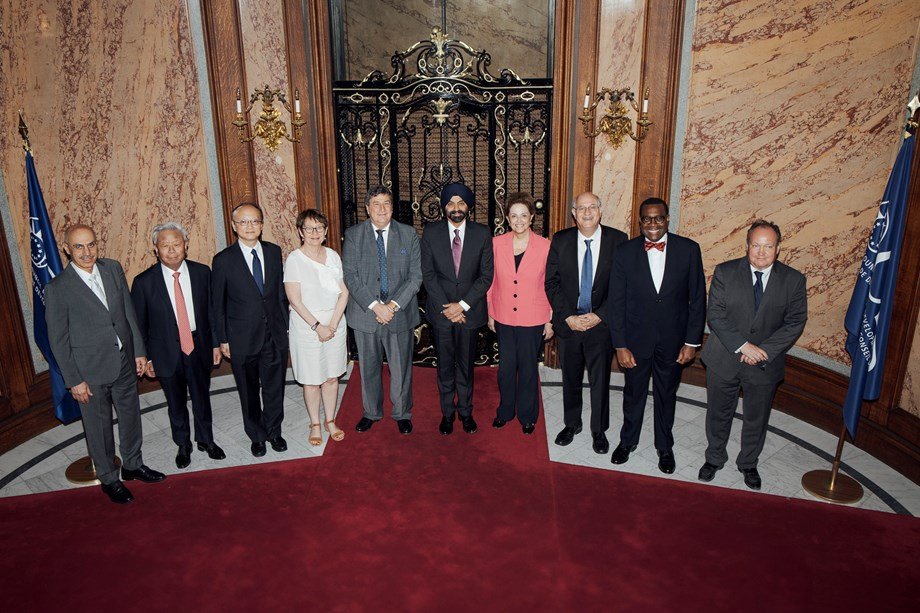The Heads of Multilateral Development Banks (MDBs) convened today in Paris for a pivotal meeting hosted by the Council of Europe Development Bank (CEB), which currently chairs the Heads of MDBs Group. The gathering marked a major step toward consolidating their shared efforts to support global development amidst escalating geopolitical, economic, and environmental challenges.
With the Fourth International Conference on Financing for Development (FfD4) set to open tomorrow in Sevilla, Spain, the meeting emphasized the critical need for MDBs to act in greater coordination, amplify impact, and deliver reforms aligned with the G20 Roadmap for creating Better, Bigger, and More Effective MDBs.
Advancing a Unified MDB Vision
The Heads reiterated their strong commitment to working as a system. They emphasized the operationalization of key reforms outlined in their Viewpoint Note and G20 guidance—reforms aimed at scaling development impact, fostering job creation, and responding more effectively to both regional and global priorities. These joint goals are being operationalized not just through policy alignment but also through practical improvements in project execution and client engagement.
Five new mutual reliance agreements have been signed since the beginning of 2025, helping reduce redundancies, accelerate co-financing, and promote joint implementation of development projects. This signals tangible momentum in MDBs’ drive toward streamlining operations and fostering deeper trust among institutions.
Private Capital and Risk Mitigation in Focus
Mobilizing private capital remains a cornerstone of the MDB agenda. The Heads recognized recent successes, as highlighted in the latest joint report showing a positive trend in volumes mobilized across emerging and developing markets. To build on this, they reaffirmed commitments to enhancing local currency lending and expanding foreign exchange solutions that reduce volatility and boost investor confidence.
Crucially, they highlighted the need for sophisticated risk assessment tools to guide investments in fragile and high-risk markets. The Global Emerging Markets Risk Database (GEMs) was praised for its provision of disaggregated credit risk data, which supports better pricing and decision-making by development finance institutions and private sector stakeholders.
Implementing Capital Adequacy Reforms
A major theme was the implementation of the G20 Independent Review of MDBs’ Capital Adequacy Frameworks (CAF). Reforms introduced since mid-2024 have already boosted MDBs’ collective lending capacity by over US$250 billion, bringing the total additional headroom to more than US$650 billion. This expanded capacity is expected to fund development projects not only in low- and middle-income countries but also in high-income countries with critical financing gaps.
In support of further transparency and optimization, the upcoming publication of the “Comparison Report” by the Global Risk and Finance Forum (GRaFF) will offer a comprehensive dataset on MDBs’ financial models and positions. These metrics aim to demystify MDB finances and support system-wide strategies for risk sharing and private sector engagement.
System-Wide Impact Initiatives
The Heads reviewed several flagship initiatives that demonstrate the MDB system’s capacity to address real-world problems at scale:
-
Mission 300: Aims to connect 300 million Africans to reliable electricity by 2030, catalyzing both public and private capital.
-
ASEAN Power Grid: Seeks to link electricity systems across Southeast Asia to enhance energy security and advance the region’s decarbonization goals.
-
Digital Education in Latin America and the Caribbean: Targets digital connectivity for 3.5 million students and training for over 250,000 teachers, focusing on inclusion and digital transformation.
These efforts reflect the MDBs’ growing role not just as financiers, but as enablers of systems-level transformation in energy, education, and infrastructure.
Strengthening Social Infrastructure and Water Security
Recognizing the interconnectedness of infrastructure and human development, the Heads committed to jointly scale up investments in social sectors including health, housing, education, and water and sanitation. These areas, though often underfunded, are foundational to achieving equitable growth and long-term resilience.
Through structured dialogue led by the CEB, MDBs have been engaging in cross-institutional consultations to overcome longstanding financing bottlenecks. This collaborative push is designed to unlock new models for delivering services to the underserved and driving inclusive development outcomes.
One of the most concrete new initiatives is a pledge to significantly increase MDB financing for water security by 2030. This will be anchored by the first-ever Joint Annual MDB Water Security Financing Report, to be launched at FfD4. The move underscores water’s essential role in health, agriculture, gender equity, and climate resilience.
Looking Ahead: COP30 and Beyond
With eyes also on COP30 in Belém, Brazil, this November, MDBs plan to bring a unified voice to climate finance discussions. Their shared aim: to expand investments in climate resilience and mitigation while ensuring that climate action is inclusive and aligned with national development strategies.
Today’s meeting in Paris signals a shift from dialogue to action. MDBs are not just talking about reform—they are implementing it, together. Through strengthened capital frameworks, improved risk-sharing, operational synergies, and a renewed focus on infrastructure and human development, MDBs are reasserting their collective role in the global development architecture.
The alignment of efforts across multiple MDBs—backed by robust data, institutional reforms, and cross-border initiatives—reflects a system in transformation. With enhanced capacity and cooperation, MDBs are increasingly positioned to deliver lasting impact, particularly where it is needed most.

